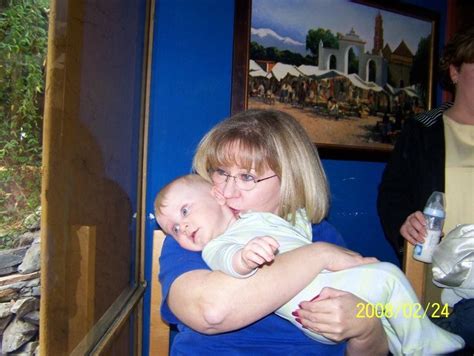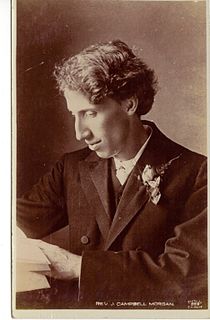A Quote by John Campbell Shairp
That image or rather that Person, so human, yet so entirely Divine, has a power to fill the imagination, to arrest the affections, to deepen and purify the conscience, which nothing else in the world has.
Related Quotes
One reaches through to the continents and oceans of the imagination, worlds able to sustain anyone who will but play, and then lets the play deepen and deepen until it is a reality that few would even dare to entertain...The human imagination is the holographic organ of the human body, and we don't 'imagine' anything. We simply see things so far away that there is no possibility of validating or invalidating their existence.
The experience I'm talking about has given me one certainty: the salvation of this human world lies nowhere else than in the human heart, in the human power to reflect, in human meekness and in human responsibility. Without a global revolution in human consciousness, nothing will change for the better, and the catastrophe toward which this world is headed will be unavoidable.
Although there is nothing so bad for conscience as trifling, there is nothing so good for conscience as trifles. Its certain discipline and development are related to the smallest things. Conscience, like gravitation, takes hold of atoms. Nothing is morally indifferent. Conscience must reign in manners as well as morals, in amusements as well as work. He only who is "faithful in that which is least" is dependable in all the world.
Among archetypal images, the Sacred Tree is one of the most widely know symbols on Earth. There are few cultures in which the Sacred Tree does not figure: as an image of the cosmos, as a dwelling place of gods or spirits, as a medium of prophecy and knowledge, and as an agent of metamorphoses when the tree is transformed into human or divine form or when it bears a divine or human image as its fruit or flowers.
The world of imagination is the world of eternity. It is the divine bosom into which we shall all go after the death of the vegetated [i.e. mortal] body. This world of imagination is infinite and eternal, whereas the world of generation is finite and temporal. There exist in that eternal world the eternal realities of everything which we see reflected in this vegetable glass of nature.
And as this is the obvious appearance of things, it must be admitted, till some hypothesis be discovered, which by penetrating deeper into human nature, may prove the former affections to be nothing but modifications of the latter. All attempts of this kind have hitherto proved fruitless, and seem to have proceeded entirely from that love of simplicity which has been the source of much false reasoning in philosophy.
Waiting for God means power to do nothing save under command. This is not lack of power to do anything. Waiting for God needs strength rather than weakness. It is power to do nothing. It is the strength that holds strength in check. It is the strength that prevents the blundering activity which is entirely false and will make true activity impossible when the definite command comes.
My third maxim was to try always to conquer myself rather than fortune, and to change my desires rather than the order of the world, and generally to accustom myself to believing that there is nothing entirely in our power except our thoughts, so that after we have done our best regarding things external to us, everything in which we do not succeed is for us absolutely impossible.
All human life-from the moment of conception and through all subsequent stages-is sacred, because human life is created in the image and likeness of God. Nothing surpasses the greatness or dignity of a human person...If a person's right to life is violated at the moment in which he is first conceived in his mother's womb, an indirect blow is struck also at the whole moral order.


































